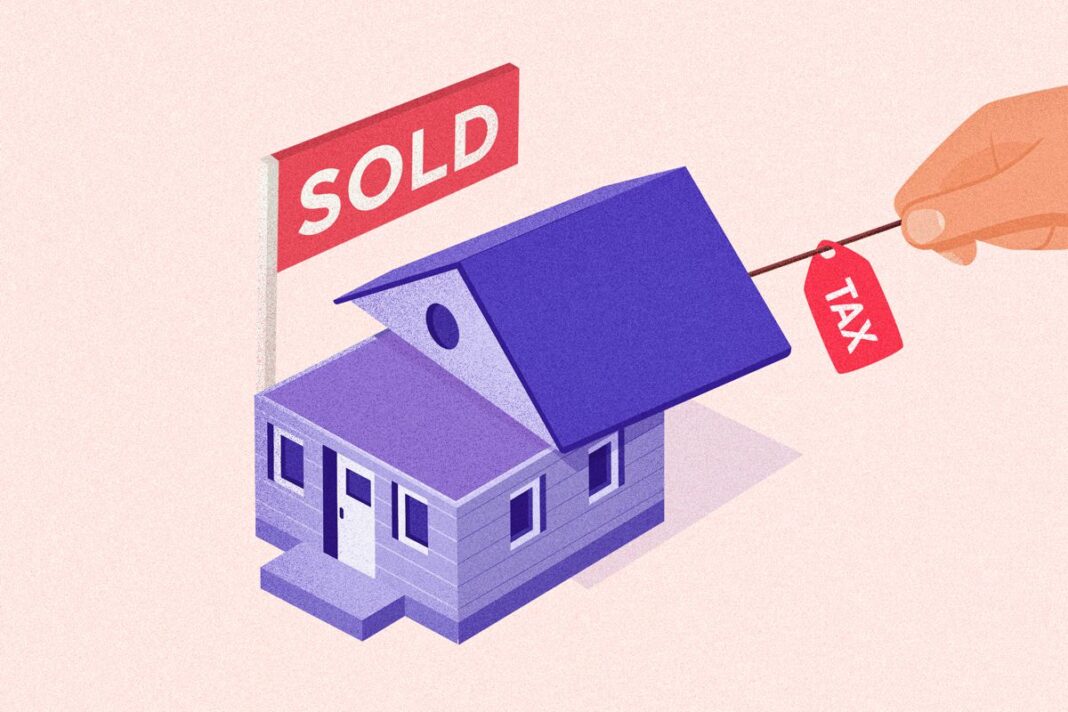The ’stay-put penalty’ contributed to constrained housing supply, industry experts said.
President Donald Trump is considering supporting a bill to eliminate the capital gains tax on home sales.
Trump has spoken favorably about the proposal on two separate occasions this month, saying that ending the levy would create sufficient incentives for homebuyers to list their properties for sale.
Earlier this month, Rep. Marjorie Taylor Greene (R-Ga.) introduced the No Tax on Home Sales Act—H.R. 4327.
The bill would adopt similar housing policies to those in Canada and Switzerland, aiming to increase housing supply.
Under Greene’s legislative initiative, any profit, no matter how large, would be tax-free if the home was a primary residence.
“The capital gains tax on home sales is an outdated, unfair burden—especially in today’s housing market, where values have skyrocketed. My bill fixes that,” she said.
With Congress in recess, the bill has yet to have any hearings or markups, and it is unclear how much congressional support the legislation can garner.
Greene, meanwhile, commended the president for his support.
“Thank you, President Trump, for supporting my No Tax on Home Sales Act!” Greene wrote on X. “You worked for it. You should keep it. Let’s get this bill passed!”
How It Would Work
The federal government maintains long- and short-term capital gains tax rates, depending on the owners’ income levels.
Exemptions are allowed, with sellers permitted to exclude home sale profits of up to $250,000 for individual tax filers and up to $500,000 for joint filers.
If a married couple purchased a four-bedroom home for $400,000 in the 1990s and sold it for $1.2 million in 2025, their capital gain would be $800,000. Under current law, they could exclude up to $500,000, leaving $300,000 subject to tax.
At a 20 percent capital gains rate, they would owe $60,000. The proposed legislation would eliminate this tax burden—saving them the full $60,000.
These exemption limits, meanwhile, have not been updated in nearly 30 years, and industry figures suggest millions of homeowners have already reached this threshold.
National Association of Realtors data indicate that one-third of homeowners, or about 29 million people, have enough equity to surpass the $250,000 exemption limit.
Ten percent, or 8 million, also have enough equity to exceed the $500,000 limit.
By 2030, the group projects that more than half (56 percent) of homeowners will have equity surpassing the $250,000 limit.
In high-priced markets, such as California and Massachusetts, the trend is more pronounced, the association noted.
Over the next 10 years, 20 states could have more than 40 percent of homeowners facing a capital gains tax because they accumulated enough equity over time.
Shannon McGahn, executive vice president and chief advocacy officer at the National Association of Realtors, said that any serious proposal to address capital gains thresholds is welcomed.
“This is not about speculation, it’s about fairness,” McGahn said in a statement to The Epoch Times. “A homeowner shouldn’t be taxed like an investor. This is about protecting equity and helping the entire market function more efficiently.
“President Trump’s comments reflect growing momentum for reform, and we’re encouraged to see this issue gaining attention at the highest levels.”
By Andrew Moran








